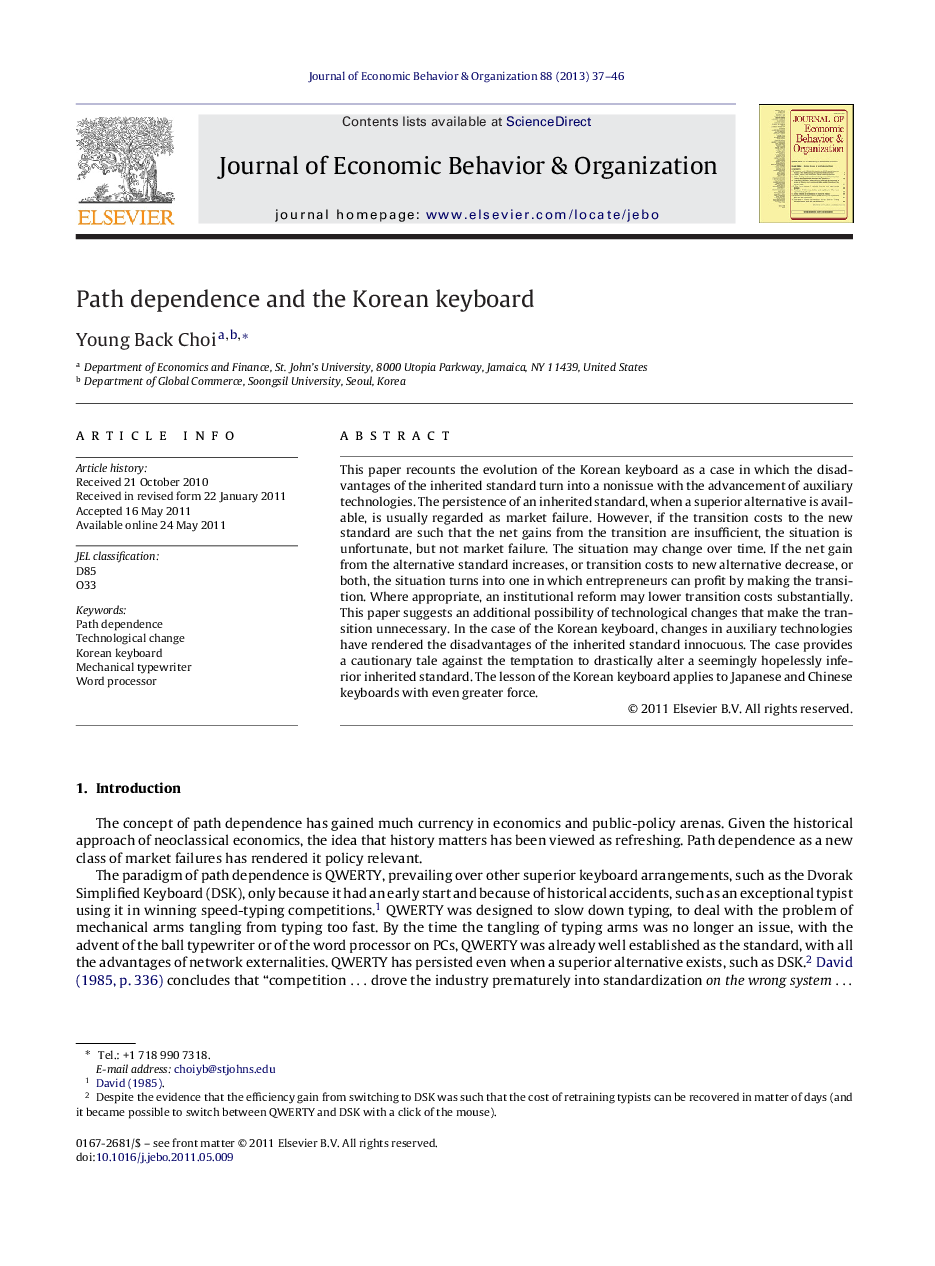| کد مقاله | کد نشریه | سال انتشار | مقاله انگلیسی | نسخه تمام متن |
|---|---|---|---|---|
| 883740 | 1471675 | 2013 | 10 صفحه PDF | دانلود رایگان |

This paper recounts the evolution of the Korean keyboard as a case in which the disadvantages of the inherited standard turn into a nonissue with the advancement of auxiliary technologies. The persistence of an inherited standard, when a superior alternative is available, is usually regarded as market failure. However, if the transition costs to the new standard are such that the net gains from the transition are insufficient, the situation is unfortunate, but not market failure. The situation may change over time. If the net gain from the alternative standard increases, or transition costs to new alternative decrease, or both, the situation turns into one in which entrepreneurs can profit by making the transition. Where appropriate, an institutional reform may lower transition costs substantially. This paper suggests an additional possibility of technological changes that make the transition unnecessary. In the case of the Korean keyboard, changes in auxiliary technologies have rendered the disadvantages of the inherited standard innocuous. The case provides a cautionary tale against the temptation to drastically alter a seemingly hopelessly inferior inherited standard. The lesson of the Korean keyboard applies to Japanese and Chinese keyboards with even greater force.
► Development of the Korean keyboard faced challenges posed by the Korea script.
► Persistence of the inherited standards was regarded as very unfortunate.
► The advent of the PCs, however, has rendered the perceived disadvantages a non-issue.
► The lesson applies with greater force to the Japanese and Chinese keyboards.
► The episode should serve as a cautionary tale for the interventionist impulse.
Journal: Journal of Economic Behavior & Organization - Volume 88, April 2013, Pages 37–46